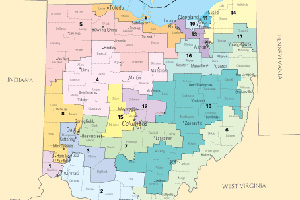The day before the election, pollsters are predicting that the Democratic wipeout could be even bigger than expected. There’s no question that the GOP will take the House, but Gallup suggests that Republican net gains could give their party a bigger House majority than any party has achieved before:
The final USA Today/Gallup measure of Americans’ voting intentions for Congress shows Republicans continuing to hold a substantial lead over Democrats among likely voters…Gallup’s analysis of several indicators of voter turnout from the weekend poll suggests turnout will be slightly higher than in recent years, at 45%. This would give the Republicans a 55% to 40% lead on the generic ballot, with 5% undecided…
It should be noted, however, that this year’s 15-point gap in favor of the Republican candidates among likely voters is unprecedented in Gallup polling and could result in the largest Republican margin in House voting in several generations. This means that seat projections have moved into uncharted territory, in which past relationships between the national two-party vote and the number of seats won may not be maintained.
The GOP needs to win just 39 Democratic seats to take the House, but projections are now up to 60 seats or more, with over 100 seats in play. And if Republicans end up on with an overwhelmingly majority, they will feel even more emboldened to find every conceivable way to block the Democratic agenda, arguing that voters gave them the mandate to do so. They’ll probably even try to find legislative means to roll back legislation, like health care, that’s already been passed. Moreover, if the GOP succeeds in the top-of-the-ballot congressional races, that’s likely to have an effect on state legislative and gubernatorial races because some voters will go for a straight-party ticket. As my colleague Nick Baumann points out, the outcomes of those races will decide who’s in charge of redrawing the Congressional map in 2011—a process that could cement GOP House victories for the next decade.
On the Senate side, Public Policy Polling’s final election eve numbers suggest that the Democrats might be just barely hang onto a majority, with Barbara Boxer in California and Joe Manchin in West Virginia predicted to win. Even if Democrats lost Senate seats in Colorado, Washington, and Nevada—the three closest toss-up races—they’d still hang onto a 51-seat majority. That will give the Democrats barely any maneuvering room, promising gridlock and potential GOP legislative victories if even a few Democrats (or Independent Joe Lieberman) defect. But given the dire political landscape for the Dems this year, it seems like the most they can hope for.
How many seats do you think Republicans will take in the House and Senate?














